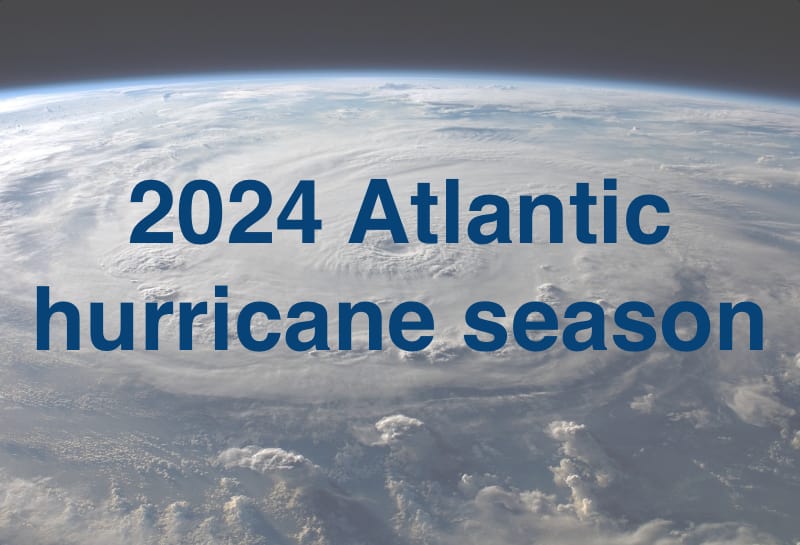Velocity Risk and Louisiana State develop Gulf hurricane model, forecast 12 storms

Velocity Risk, the catastrophe exposed property insurance specialist E&S managing general agency (MGA) and holding company, has partnered with Louisiana State University to develop a Gulf of Mexico focused hurricane risk model, with the forecast for the 2024 season being that the region will see 12 storms.
The joint venture, named the Velocity Risk LSU Gulf Hurricane Outlook, represents the first and only Gulf Coast-centric hurricane model, the company said.
The Gulf hurricane model uses daily data to predict US hurricane seasonal activity, which Velocity says marks “a significant advancement in more precise Gulf hurricane forecasting.”
Velocity Risk notes that US hurricane risk is the most consequential factor for its business, as well as for the industry at large.
“This joint venture underscores Velocity Risk’s commitment to establishing itself as a thought leader in hurricane and weather-related catastrophe research and risk management within the E&S space,” the company stated.
Beginning in early 2023, the project saw experts including Dr. Paul W. Miller, Assistant Professor, Department of Oceanography and Coastal Sciences, LSU; Henry Lipscomb, Analytics Manager and Sam Ye, Data Scientist of Velocity Risk; and Jonathan Russell, Velocity Risk Intern and LSU student collaborating to develop what is seen as a pioneering hurricane model.
The model leverages comprehensive daily data aggregated into whole of season forecasts, using sophisticated Random Forest machine learning algorithms so the team can make daily predictions, normalising the output to produce an accurate forecast for the upcoming season.
Dr. Paul Miller commented, “Our model is specifically designed to address the unique challenges of the Gulf Coast region. By focusing on this area, we can provide more accurate and reliable forecasts, ultimately helping to protect lives and property.”
The Velocity Risk-LSU model calls for 12 systems in the Gulf of Mexico for the 2024 US hurricane season and the team behind it said they are eager to see how it performs over this and the coming seasons.
Released yearly, this model is expected to provide valuable insights for the Gulf Coast, as well as being used to augment Velocity Risk’s portfolio construction and risk management strategies.
Henry Lipscomb added, “This collaboration with LSU marks a significant milestone in our efforts to enhance hurricane forecasting and risk management. We are excited to be at the forefront of this innovation and look forward to the positive impact it will have on the industry.”
Jonathan Russell, intern at Velocity Risk, added, “Partnering with Velocity Risk has allowed me to apply academic research in a practical, and impactful way. The Velocity Risk LSU Gulf Hurricane Outlook is a testament to the power of combining academic rigor with industry expertise.”
Hurricane risk for the Gulf Coast is seen as elevated for the 2024 season.
Colorado State University’s tropical forecast team said there is a 42% chance of major hurricane landfall for the Gulf Coast from the Florida panhandle westward to Brownsville this year, much higher than the average from 1880–2020 of 27%.
Meanwhile, North Carolina State University forecasters said that between 5 and 7 named storms are predicted to form in the region of the Gulf of Mexico this year.
Also of note, the ECMWF model highlighted the Gulf of Mexico as one area that could see enhanced levels of tropical cyclone activity in the 2024 hurricane season.
Track the 2024 Atlantic tropical storm and hurricane season on our dedicated page and we’ll update you as new information emerges.






